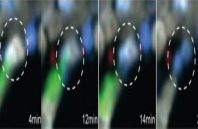Thanks to a microscopy method, a team of researchers at the Pasteur Institute (Paris, France) and the French National Institute of Health and Medical Research (INSERM; also in Paris) has revealed that chimeric antigen receptor (CAR) T cells can induce tumor regression by directly targeting and killing cancer cells, uncovering new details of how these immune cells work and how their effectiveness could be improved in the treatment of non-Hodgkin’s lymphoma and other B cell cancers.
CAR T cells are genetically engineered immune cells that can be custom-made to attack a patient’s tumor cells. For example, CAR T cells that target a protein called CD19, which is found on many lymphoma and leukemia cells, are an FDA-approved treatment for several B cell malignancies, including non-Hodgkin’s lymphoma and acute lymphoblastic leukemia.
However, some patients fail to respond to anti-CD19 CAR T cells, while others, after an initial improvement, suffer a relapse and develop therapy-resistant tumors that no longer express CD19. Philippe Bousso and colleagues at the Pasteur Institute believe that the key to improving treatment is to learn more about how CAR T cells work. For instance, it had remained unclear if CAR T cells kill the cancer cells themselves or whether they induce other immune cells to attack the tumor.

 (585) 768-2513
(585) 768-2513

